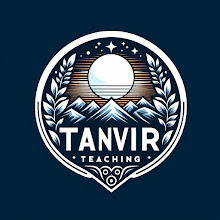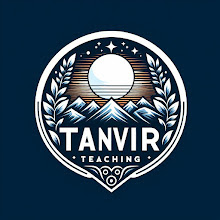Unveiling the Downsides: How ChatGPT Impacts Education and Academic Performance
Introduction:
In the ever-evolving landscape of technology, the integration of Artificial Intelligence (AI) has reshaped various aspects of our lives. Among the myriad applications, ChatGPT has emerged as a powerful tool, showcasing impressive capabilities in natural language processing. While celebrated for its potential, a critical examination of its drawbacks, particularly within the realm of education and academic performance, is essential. This comprehensive exploration seeks to unveil the multifaceted ways in which ChatGPT might present challenges for students and educators alike.
Overreliance
on ChatGPT for Learning: A Shortcut to Nowhere:
The incorporation of ChatGPT into educational settings raises concerns about the potential for overreliance. The allure of obtaining quick answers may tempt students to use ChatGPT as a shortcut, bypassing critical thinking and problem-solving processes. This section will thoroughly scrutinize the implications of such overdependence, delving into how it could impede the development of vital skills necessary for academic success.
To deepen our analysis, it's crucial to understand the psychological aspects at play. Human cognition involves not only acquiring information but also engaging in active processing and analysis. Overreliance on ChatGPT could potentially diminish students' cognitive engagement, limiting their ability to develop analytical skills critical for advanced learning and real-world problem-solving.
Furthermore, the impact on long-term memory retention deserves attention. Studies have shown that information acquired through active engagement and critical thinking is more likely to be retained in long-term memory. The danger lies in students using ChatGPT as a quick solution without internalizing the information, potentially leading to a superficial understanding of concepts.
Quality
of Information: Navigating the Waters of Accuracy:
Despite its impressive capabilities, ChatGPT generates responses based on learned patterns from extensive datasets. However, this mechanism doesn't guarantee the accuracy or reliability of the information provided. In academic contexts where precision and authenticity are paramount, relying solely on ChatGPT might lead to misinformation.
In our deep analysis, it's crucial to recognize the biases inherent in AI models. ChatGPT, trained on diverse datasets, may inadvertently perpetuate biases present in the data. For instance, if historical data contains gender or racial biases, ChatGPT might unknowingly reproduce these biases in its responses.
The implications for academic research and discourse are substantial. If students and researchers unknowingly rely on biased information generated by ChatGPT, it could contribute to the perpetuation of stereotypes and misinformation within academic circles. Acknowledging and addressing these biases becomes imperative for maintaining the integrity of academic pursuits.
Lack
of Personalized Feedback: The Absence of Tailored Guidance:
Effective learning often requires personalized feedback tailored to individual students' strengths and weaknesses. ChatGPT, as a machine learning model, lacks the capacity to comprehend the unique needs of each student. This section will explore the repercussions of this deficiency, examining how the absence of personalized guidance may hinder academic progress and limit the potential for targeted improvement.
In our deep analysis, it's essential to consider the intricate nature of personalized feedback. Human educators possess the ability to understand not just the student's response but also the underlying thought process and potential areas of confusion. This level of nuanced comprehension is currently beyond the capabilities of AI models like ChatGPT.
Moreover, the socio-emotional aspect of education, encompassing encouragement, motivation, and empathetic understanding, is a dimension where AI currently falls short. Human educators contribute significantly to students' emotional well-being, fostering a positive learning environment. The absence of such emotional intelligence in AI tools could hinder the holistic development of students.
Potential
for Plagiarism: Unmasking the Threat to Academic Integrity:
The ease with which ChatGPT generates text raises concerns about the potential for plagiarism. Students, seeking shortcuts, might be tempted to use the AI tool to generate essays, reports, or assignments without fully understanding or engaging with the material.
In our deep analysis, we must recognize the evolving nature of academic misconduct. The use of AI in generating content introduces new challenges for academic institutions in detecting and preventing plagiarism. Traditional methods of plagiarism detection may not be equipped to identify content generated by sophisticated language models.
This dynamic landscape necessitates a reevaluation of academic integrity policies. Educational institutions must adapt their strategies, incorporating advanced plagiarism detection tools capable of discerning between content created by students and that generated by AI models like ChatGPT. A proactive approach is essential to maintain the credibility of academic assessments.
Dependency
on Technology: Striking a Balance in the Digital Era:
Integrating ChatGPT into education undoubtedly increases the dependency on technology. While technology is a valuable tool, excessive reliance may lead to a decline in essential human skills. This section will explore the delicate balance required, emphasizing the importance of preserving face-to-face communication, critical thinking, and problem-solving skills crucial for academic success and real-world application.
In our deep analysis, it's imperative to recognize the broader societal implications of technology dependency. The digital era has witnessed a shift in the skills deemed essential for success. While technological proficiency is crucial, the enduring value of interpersonal skills, critical thinking, and adaptability cannot be overstated.
Striking a balance involves not just integrating technology into educational practices but also fostering a culture that values and nurtures human-centric skills. Initiatives aimed at developing a well-rounded skill set, including collaborative projects, communication workshops, and critical thinking exercises, become integral components of educational strategies in the digital age.
Conclusion:
As educators and students navigate the intersection of AI and education, it is imperative to remain mindful of the potential disadvantages posed by ChatGPT. This expanded exploration, coupled with deep analysis, underscores the need to strike a balance, leveraging AI tools while preserving the fundamental aspects of traditional education. By addressing these concerns with a nuanced perspective, acknowledging biases, and adapting academic practices, stakeholders can ensure a holistic and enriching learning experience in the ever-evolving landscape of education and technology.







.jpg)






0 Comments